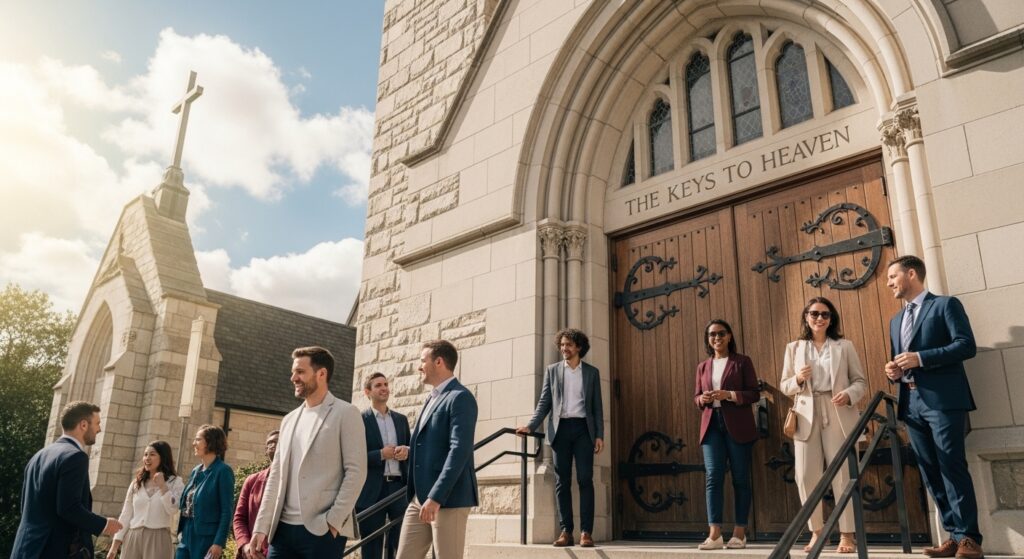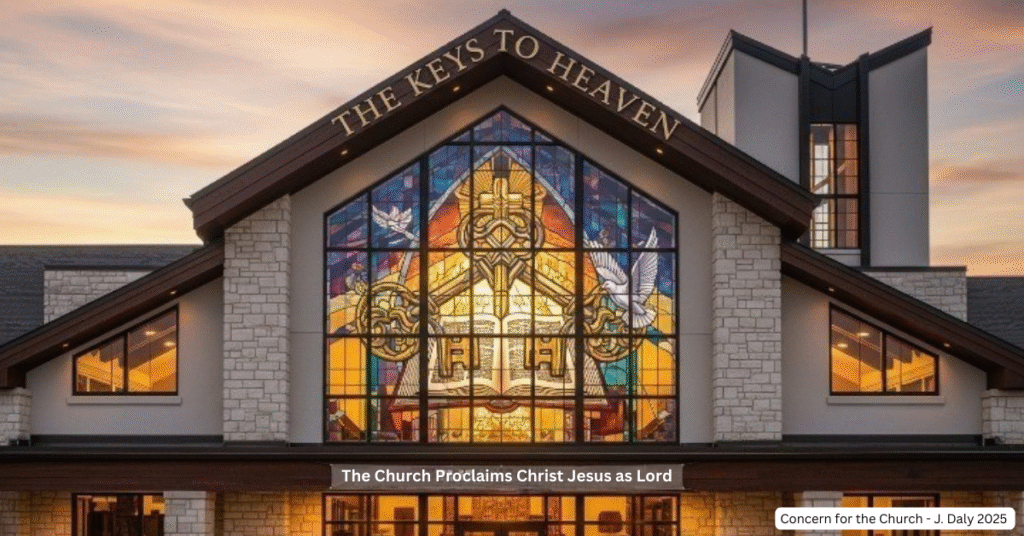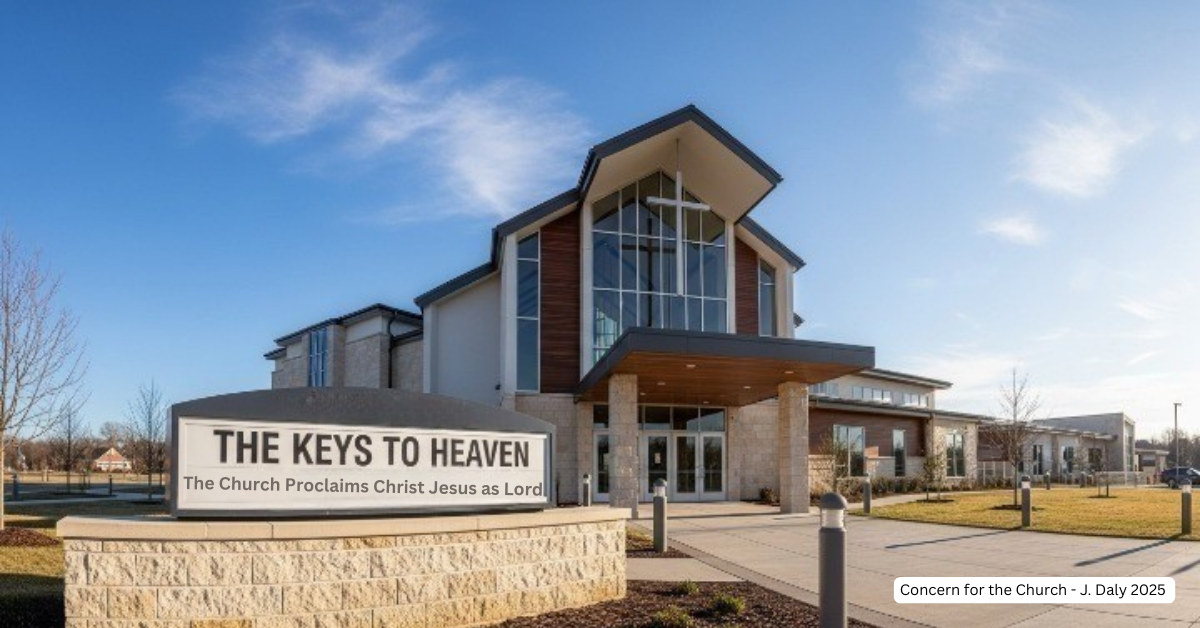The church’s mandate to open the door to the Kingdom of Heaven stems from a profound biblical principle established by Jesus Himself. When Jesus gave Peter and subsequently the church “the keys of the kingdom of heaven” He entrusted His followers with the sacred responsibility of serving as divine gatekeepers who facilitate entrance into eternal life.
Biblical Foundation
The authority to open heaven’s doors is rooted in Matthew 16:19, where Jesus declares: “I will give you the keys of the kingdom of heaven.” This mandate carries two essential aspects:
Opening Heaven’s Gates
- Through preaching the gospel, believers open the door to heaven
- Scripture serves as the authoritative key that reveals all truth about kingdom entrance
- The church acts as God’s messengers to proclaim to the world the Name of Salvation – Christ Jesus Saves-Alone

Declaring Forgiveness
- Church leaders can declare sins forgiven to those who believe
- God ratifies these earthly declarations in heaven
- This authority operates strictly according to gospel principles
Historical Context and Significance
In ancient Near Eastern kingdoms, the steward who held the palace keys wore them visibly on a chain around his neck, signifying his authority to grant or deny access to the king. Similarly, the church’s possession of the keys represents its divinely appointed role as heaven’s gatekeeper.
Practical Implementation
The church exercises this mandate through several key functions:
- Preaching the Gospel
- Sharing Christ’s message opens heaven’s door to seekers
- The gospel contains all necessary truth about kingdom entrance
- Every declaration of forgiveness must align with Scripture
Spiritual Guidance
- Church leaders assist seekers in reaching Jesus Christ.
- The Church leaders are to help interpret God’s Word for salvation
- Their authority is derived from the divine appointment
The Church’s Mandate in Light of God’s Sovereign Work
The church’s mission is grounded in the finished work of Christ and the sovereign will of God:
- God alone has accomplished salvation through the life, death, and resurrection of Jesus Christ, apart from any human merit or cooperation.
- The church’s role is to faithfully proclaim this completed work, as God uses the preaching of the gospel as the means by which He calls and gathers His elect.
- The effectiveness of the gospel does not depend on human action, but on the power of the Holy Spirit, who applies Christ’s work to the hearts of sinners according to God’s eternal decree.
Ultimate Purpose
The Church’s Sacred Mandate
The church is called by God to fulfill a twofold purpose:
- To Proclaim the Gospel to Sinners Through the faithful preaching of the Word, the church invites all people to repentance and faith in Jesus Christ, who alone is the Way, the Truth, and the Life. This proclamation is not a human invention, but the declaration of what God has already accomplished through the life, death, and resurrection of Christ.
- To Declare Forgiveness to Believers The church announces the good news that, by grace alone, sinners are justified through faith in Christ’s finished work. This forgiveness is not granted by the church, but by God, and is received by those who trust in Him.

The Keys of the Kingdom
When Jesus spoke of giving the “keys of the kingdom” to the church (Matthew 16:19), He entrusted to His people the honor and privilege of proclaiming the gospel—the message that opens the door to eternal life. The “keys” represent the authority to preach the Word, to call people to faith, and to declare the terms of entrance into God’s kingdom. This authority is ministerial, not magisterial: the church does not own the keys, nor does it control access to heaven. Rather, the church is a steward, faithfully unlocking the gospel for all who will believe.
A Privileged Stewardship
The church is not the owner of the kingdom or the author of salvation, but it is given the high calling to be Christ’s ambassador. It is a privilege to herald the message of reconciliation, to administer the sacraments, and to disciple believers. In this way, the church serves as a signpost, pointing sinners to the only Savior, Jesus Christ.
A Matter of Eternal Consequence
Every gathering of the church is significant, for the gospel is a matter of life and death, heaven and hell. The church does not create salvation, but it is the instrument through which God calls His people to Himself. The church’s authority is derived from Scripture and exercised in submission to Christ, the Head of the church.
Conclusion
The church’s role is not to lord over souls, but to serve as a faithful witness to the salvation that God has provided. It is a sacred trust, a great honor, and a solemn responsibility to proclaim to the lost the only Way of salvation: faith in Jesus Christ.

